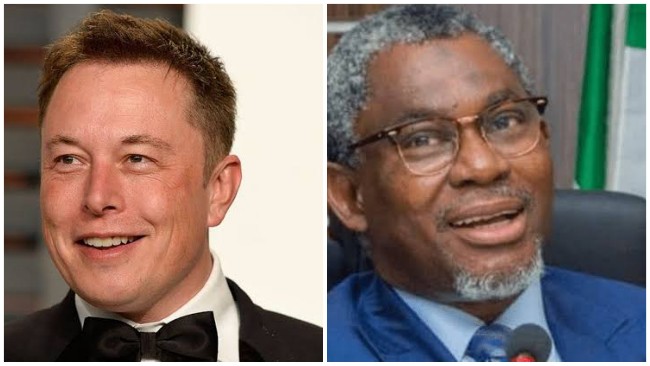Business
Elon Musk eyes Nigerian market for electric vehicle raw materials, govt gives counter offer

Tesla, the company owned by the world’s richest man, Elon Musk, showed interest in signing a trade partnership with Nigeria, to import raw materials for production of batteries for its electric vehicles.
Musk’s company had planned to import lithium, an essential component for building batteries of electric vehicles, from Nigeria, where a large deposits of the minerals are found in Kogi, Plateau, Nasarawa, Oyo, Ekiti, Cross River, and Kwara states.
An unnamed representative of Tesla had discussed with Minister of Mines and Steel Development, Olamilekan Adegbite, on trade pact that would see Musk’s company list Nigeria as one of its market source for lithium.
Both parties held the talks during an event in Saudi Arabia, at an unspecified period, but Adegbite said the trade offer was turned down by Nigerian government, instead, Musk was asked to come set up a battery factory in Nigeria, which would create new markets and jobs within the country.
He made this known at a summit titled, “Leveraging Future Minerals for Sustainable Development”, on Thursday, held in Abuja.
Electric vehicle discussion has been taking shape in Nigeria in the past years, with various stakeholders showing interest.
Recall Ripples Nigeria had reported that GIG Logistics, and JET Motor Company struck a deal to launch the first electric vehicles in the country’s delivery market.
Read also:Elon Musk accuses Twitter of hiding ‘custodian of records’ amid court battle
And with half of lithium demand in the next two decades set to be from the global electric vehicle industry, the Nigerian government believes Tesla establishing its battery factory within the country, would better position Nigeria in the global electric vehicle market.
In 2020, the global electric vehicle market was valued at $163.01 billion, but this valuation is set to rise significantly to $823.75 billion by 2030, with the lithium market expected to grow from $3.64 billion in 2020 to $6.62 billion in 2028.
“Nigeria is richly endowed with critical minerals. Lithium and tantalum are found in parts of the extensive pegmatite belts of Nigeria.” Adegbite said
It was gathered that lithium demand will rise 10 to 30 times by 2040, and the Minister of Mines said, “The World Bank has estimated the demand for these minerals to triple by 2040. Undoubtedly, the deployment of critical minerals for a clean energy transition will remain significantly intensive for a long time.”
Join the conversation
Support Ripples Nigeria, hold up solutions journalism
Balanced, fearless journalism driven by data comes at huge financial costs.
As a media platform, we hold leadership accountable and will not trade the right to press freedom and free speech for a piece of cake.
If you like what we do, and are ready to uphold solutions journalism, kindly donate to the Ripples Nigeria cause.
Your support would help to ensure that citizens and institutions continue to have free access to credible and reliable information for societal development.
























